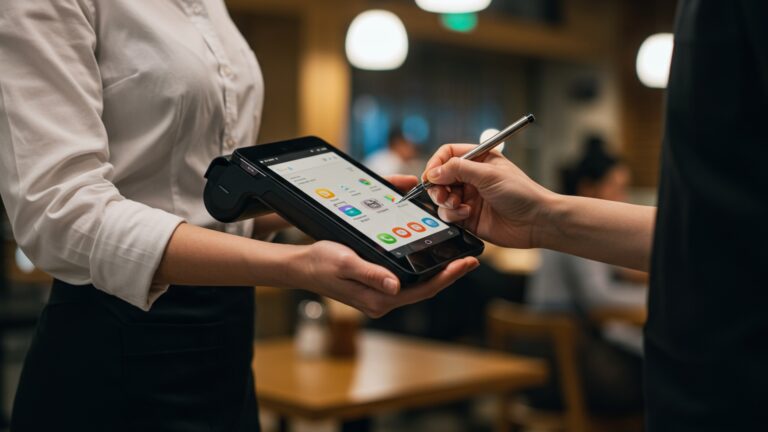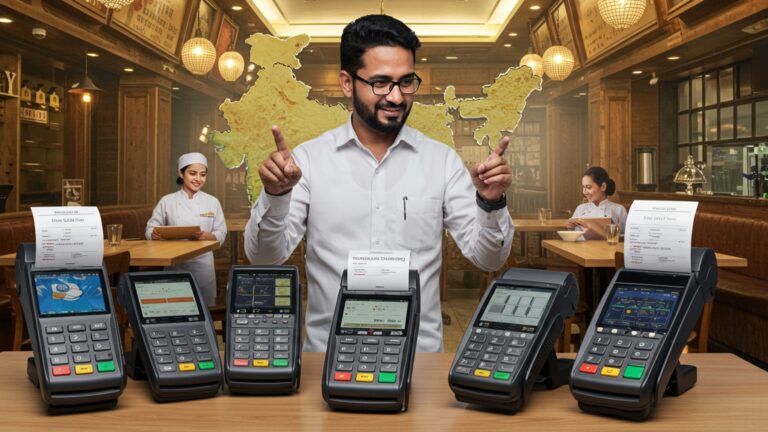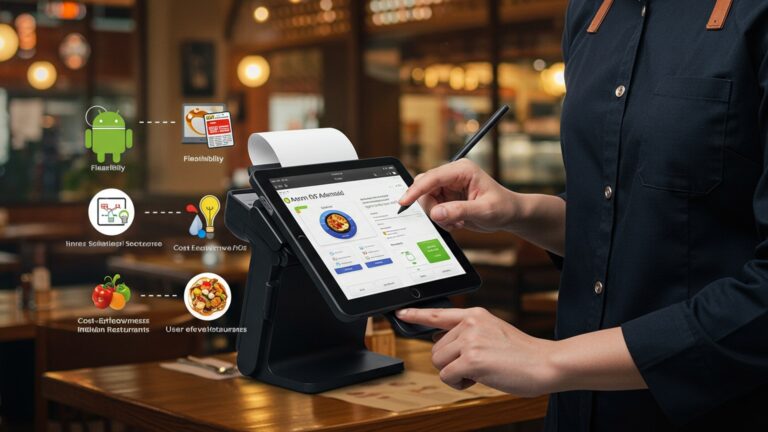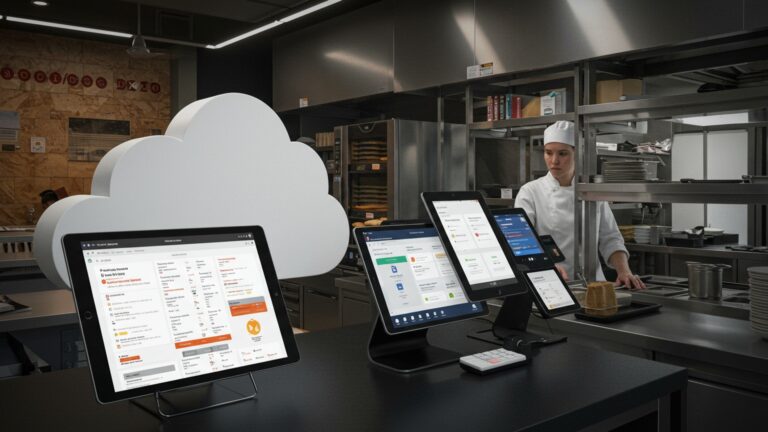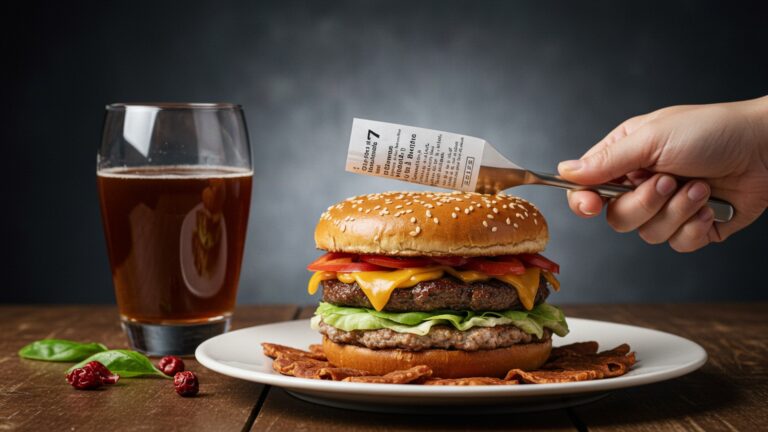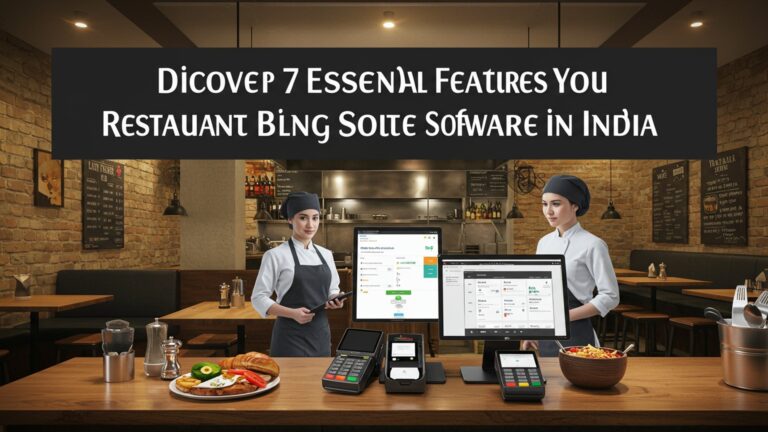Top 5 POS Software Solutions for Cloud Kitchens India Needs Today
India’s burgeoning cloud kitchen sector thrives on digital efficiency, yet the challenge of managing diverse order streams from platforms like Swiggy and Zomato, alongside direct channels, often overwhelms operators. The need for a unified operational backbone is critical, transforming how virtual brands handle everything from inventory synchronization across multiple menus to real-time sales analytics. The right POS software for cloud kitchens India now acts as the central nervous system, automating order aggregation, optimizing kitchen workflows. providing invaluable insights into customer preferences and peak demand periods. This strategic technological adoption is key to scaling efficiently, minimizing errors. ultimately driving profitability in a market where speed and precision define success.
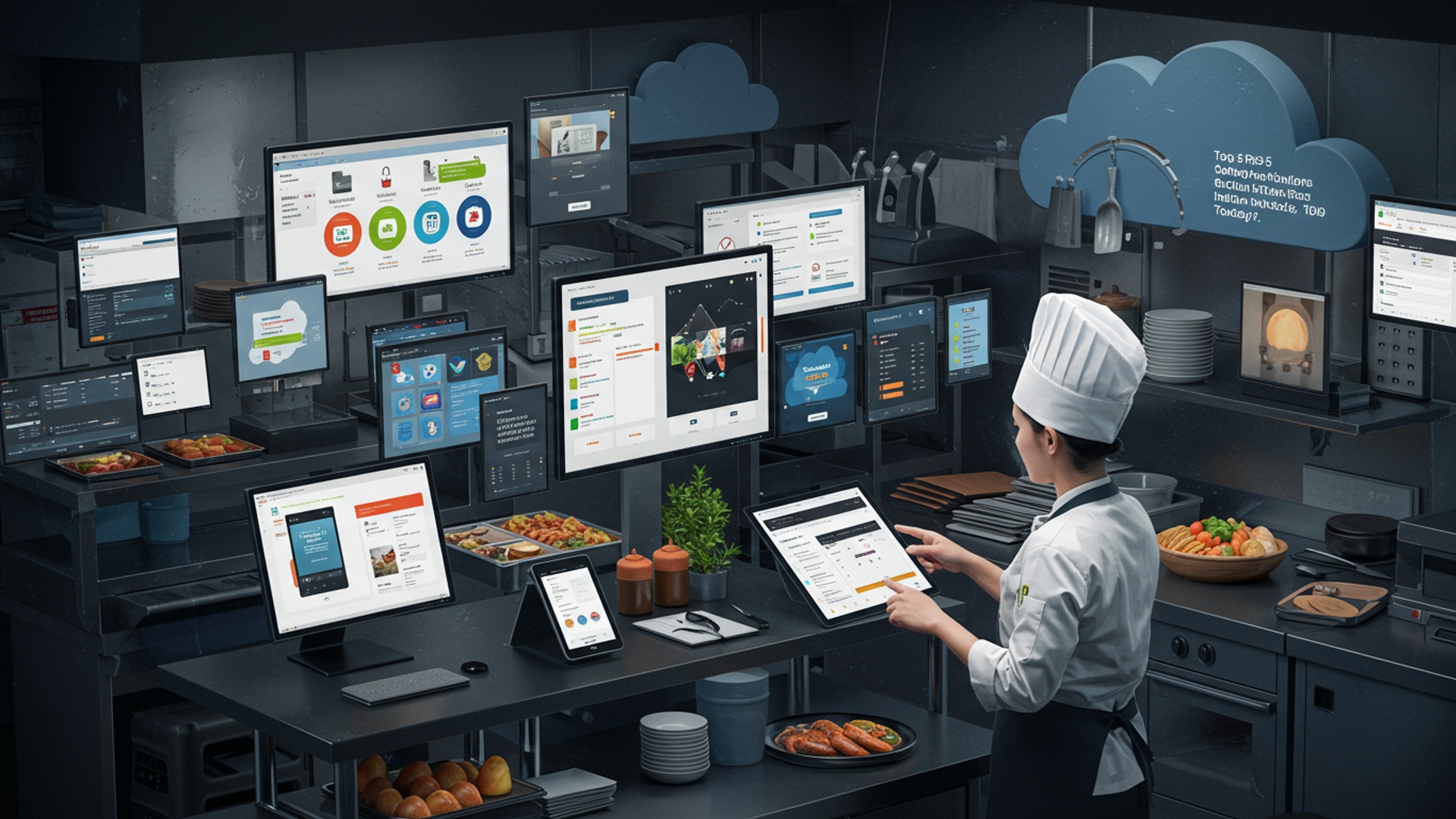
Understanding the Cloud Kitchen Revolution and the Role of POS
The culinary landscape in India has undergone a significant transformation, largely propelled by the rise of cloud kitchens. Unlike traditional restaurants, cloud kitchens, also known as dark kitchens or ghost kitchens, operate without a physical dining space. Their entire business model revolves around online orders and delivery, making them highly efficient and scalable. This innovative approach has allowed entrepreneurs to enter the food industry with lower overheads and greater flexibility, directly addressing the growing demand for convenient food delivery across Indian cities.
Why are cloud kitchens thriving in India? Several factors contribute to their success: the explosion of food delivery platforms, changing consumer habits favoring convenience, lower initial investment compared to traditional restaurants. the ability to experiment with multiple brands from a single kitchen. But, managing such a delivery-centric operation requires sophisticated tools. at the heart of this efficiency lies robust Point of Sale (POS) software.
What exactly is POS software? At its core, a POS system is where your customer makes a payment for products or services. For a cloud kitchen, But, it’s far more than just a billing terminal. It’s an integrated system that manages everything from order intake and kitchen display systems (KDS) to inventory, customer relationship management (CRM). detailed sales analytics. Essentially, it’s the operational backbone that connects all aspects of a cloud kitchen’s workflow, ensuring seamless operation from the moment an order is placed until it’s delivered.
For cloud kitchens, the right POS software for cloud kitchens India needs today is not just a luxury but a necessity. It streamlines operations, aggregates orders from various platforms (like Swiggy, Zomato, etc.) , manages inventory in real-time, reduces errors. provides critical data insights. Without an efficient POS system, a cloud kitchen would struggle to keep up with order volumes, manage ingredients. grasp its financial performance, ultimately hindering its ability to scale and succeed in a competitive market.
Key Features to Look for in POS Software for Cloud Kitchens
Selecting the ideal POS software for cloud kitchens India requires a deep understanding of the unique challenges and opportunities presented by this business model. Here are the crucial features that every cloud kitchen owner should prioritize:
- Comprehensive Order Management and Aggregation
- Real-time Inventory Management
- Kitchen Display System (KDS) Integration
- Customer Relationship Management (CRM)
- Robust Reporting and Analytics
- Third-party Integrations
- Cloud-based Accessibility
- Scalability
- Ease of Use and Reliable Support
Cloud kitchens receive orders from multiple online delivery platforms (Swiggy, Zomato, Dunzo, etc.) , direct websites. sometimes even phone calls. A top-tier POS system must consolidate all these orders into a single interface. This prevents missed orders, reduces manual data entry errors. ensures that the kitchen receives a unified flow of orders, regardless of their source.
Managing ingredients is paramount to profitability. The best POS solutions track ingredient usage in real-time, deducting items from inventory as orders are processed. This helps prevent stockouts, minimizes food waste. provides accurate data for reordering, directly impacting your bottom line.
A KDS digitally displays orders in the kitchen, replacing paper tickets. It helps streamline kitchen operations, tracks preparation times. ensures orders are prepared accurately and promptly. Integration with the POS system is crucial for a smooth workflow.
Even without a physical storefront, understanding your customers is vital. A good POS system captures customer data (order history, preferences, contact details), allowing for personalized marketing campaigns, loyalty programs. better service, fostering repeat business.
Data is power. The POS should offer detailed reports on sales trends, peak hours, popular menu items, ingredient costs. staff performance. These insights enable informed decision-making, menu optimization. strategic planning.
Seamless integration with essential third-party services is non-negotiable. This includes food delivery aggregators, payment gateways, accounting software (e. g. , Tally, Zoho Books). potentially HR/payroll systems. API-driven integrations ensure a smooth flow of data across your entire tech ecosystem.
Given the nature of cloud kitchens, a cloud-based POS is essential. It allows owners and managers to access data and manage operations remotely, from any device, at any time. This flexibility is crucial for overseeing multiple kitchen locations or working off-site.
As your cloud kitchen business grows, your POS system should be able to scale with it, accommodating increased order volumes, additional brands, or new kitchen locations without requiring a complete system overhaul.
The software should be intuitive for staff to learn and operate, minimizing training time and errors. Moreover, readily available and responsive customer support in India is vital for troubleshooting and ensuring continuous operation.
Top 5 POS Software Solutions for Cloud Kitchens India Needs Today (Detailed Review)
Navigating the bustling market of POS solutions can be challenging. We’ve handpicked five leading options that cater specifically to the demands of cloud kitchens in India, offering robust features and proven track records.
Petpooja
Petpooja is a prominent name in the Indian F&B technology space, widely adopted by a vast number of restaurants and cloud kitchens. It’s known for its comprehensive feature set tailored for high-volume operations.
- Key Features
- All-in-one Order Management
- Advanced Inventory Management
- Smart KDS
- Analytics & Reporting
- CRM & Loyalty Programs
- Integration Ecosystem
- Why it’s a good fit for POS software for cloud kitchens India: Petpooja’s strength lies in its deep understanding of the Indian F&B market. Its robust aggregation capabilities are crucial for cloud kitchens managing multiple online channels. The comprehensive inventory and reporting features ensure tight control over costs and operations, which is vital for profitability in a high-volume, low-margin business.
Aggregates orders from all major food aggregators (Swiggy, Zomato, etc.) into a single dashboard, simplifying order processing.
Tracks raw material consumption, manages recipes, alerts for low stock. helps in waste reduction.
Digital kitchen display system that streamlines order preparation and tracking.
Provides detailed sales, inventory. customer reports to help assess performance and make data-driven decisions.
Tools to build customer databases, run loyalty programs. send targeted promotions.
Seamlessly integrates with delivery platforms, payment gateways, accounting software. other third-party APIs.
POSist
POSist is another industry leader, recognized globally for its powerful and scalable restaurant management platform. It’s designed to handle complex operations and is a preferred choice for large chains and fast-growing cloud kitchen brands.
- Key Features
- Centralized Order Management
- Multi-Store Management
- Detailed Inventory & Recipe Management
- Robust Reporting & BI
- Open API for Integrations
- Commission Management
- Why it’s a good fit for POS software for cloud kitchens India: POSist’s scalability and advanced analytics make it an excellent choice for cloud kitchens looking for rapid expansion. Its multi-store management capabilities are a game-changer for businesses planning to operate several brands or kitchens simultaneously, offering unmatched control and visibility.
Offers a powerful order aggregation module that pulls in orders from all online channels, direct ordering systems. call centers.
Ideal for cloud kitchens operating multiple brands or multiple locations, allowing centralized control and reporting.
Advanced features for managing complex recipes, tracking ingredient costs. minimizing pilferage.
Provides in-depth business intelligence and analytics, offering actionable insights into sales, costs. customer behavior.
Highly flexible with an open API, allowing for extensive integrations with various delivery aggregators, payment gateways. third-party systems.
Helps track and reconcile commissions from various delivery partners.
Gofrugal
Gofrugal is a well-established player in the retail and restaurant POS market in India, offering a range of solutions for various business sizes. Their restaurant POS is known for its reliability and extensive features.
- Key Features
- Integrated Order Management
- Efficient Inventory Control
- Delivery Management Module
- CRM & Loyalty
- Comprehensive Analytics
- Mobile POS
- Why it’s a good fit for POS software for cloud kitchens India: Gofrugal’s strong focus on end-to-end delivery management and mobile capabilities makes it highly suitable for cloud kitchens where delivery logistics are critical. Its comprehensive features cover all aspects of cloud kitchen operations, from order processing to inventory and customer engagement.
Handles online orders from aggregators, direct orders. provides a streamlined flow to the kitchen.
Features for stock tracking, purchase management, supplier management. recipe costing.
Helps manage delivery riders, track delivery status. optimize delivery routes.
Offers tools to manage customer data, run loyalty programs. send SMS/email marketing campaigns.
Provides reports on sales, inventory, customer behavior. employee performance.
Offers mobile applications for order taking, delivery tracking. inventory checks, adding flexibility to operations.
Restroworks (formerly LimeTray)
Restroworks, previously known as LimeTray, has evolved into a comprehensive restaurant operating system, particularly strong in online ordering and customer engagement, making it highly relevant for cloud kitchens.
- Key Features
- Unified Online Ordering System
- Aggregator Integration
- Smart KDS
- CRM & Marketing Automation
- Inventory & Recipe Management
- Detailed Analytics
- Why it’s a good fit for POS software for cloud kitchens India: Restroworks excels in helping cloud kitchens establish a direct-to-consumer channel, which is crucial for building brand loyalty and increasing profitability. Its focus on online ordering, CRM. marketing automation directly addresses the core needs of a delivery-only business model.
Provides cloud kitchens with their own branded website and app for direct orders, reducing reliance on third-party aggregators and saving on commissions.
Seamlessly integrates with major food delivery platforms, consolidating orders.
Optimizes kitchen workflow with digital order displays and preparation tracking.
Powerful tools to capture customer data, segment audiences. run automated marketing campaigns to drive repeat orders.
Tracks stock, manages recipes. helps control food costs.
Offers insights into sales, customer behavior. marketing campaign performance.
Dotpe
Dotpe has emerged as a significant player by enabling businesses to go digital quickly, particularly offering solutions that help restaurants and cloud kitchens create their online storefronts and manage operations efficiently.
- Key Features
- Digital Storefront Creation
- Integrated Payments
- Order Management
- Customer Data & Engagement
- Delivery Management
- Basic Reporting
- Why it’s a good fit for POS software for cloud kitchens India: Dotpe is particularly appealing for new cloud kitchens or those looking to quickly establish a strong direct online presence. Its ease of setup for a digital storefront combined with integrated payments and order management makes it a powerful tool for driving direct orders and reducing dependency on high-commission aggregators, making it a competitive POS software for cloud kitchens India.
Allows cloud kitchens to quickly set up their own branded online ordering website/app without coding, complete with menu and payment options.
Offers robust payment gateway integrations, facilitating direct online payments from customers.
A streamlined system to receive and manage orders from their own digital storefront and often integrates with aggregators.
Helps capture customer details and provides tools for basic customer engagement and promotions.
Integrates with third-party logistics partners or allows for managing in-house delivery.
Provides essential sales and order reports to monitor business performance.
Comparing the Leading POS Solutions for Cloud Kitchens in India
Choosing the right POS software for cloud kitchens India is a critical decision. Here’s a comparative table to help you evaluate the leading options based on key criteria:
| Feature/Solution | Petpooja | POSist | Gofrugal | Restroworks | Dotpe |
|---|---|---|---|---|---|
| Primary Focus | Comprehensive F&B operations, strong aggregation | Scalable restaurant management, advanced analytics | End-to-end F&B & retail, robust delivery | Online ordering, CRM, direct sales enablement | Digital storefront, direct orders, integrated payments |
| Order Aggregation | Excellent, multi-platform dashboard | Excellent, highly customizable | Good, integrates multiple channels | Good, strong focus on direct orders + aggregation | Good, primarily for direct orders + some aggregation |
| Inventory Management | Advanced, recipe costing, waste control | Highly advanced, multi-location, detailed costing | Comprehensive, purchase & supplier management | Good, tracks stock and recipe usage | Basic to moderate |
| KDS Integration | Yes, smart KDS | Yes, highly customizable | Yes | Yes, optimized for online orders | Yes, basic KDS |
| CRM & Loyalty | Yes, integrated programs | Yes, advanced customer segmentation | Yes, SMS/email marketing | Excellent, marketing automation | Basic customer data, promotions |
| Reporting & Analytics | Detailed sales, inventory, customer insights | In-depth BI, multi-location, customizable reports | Comprehensive, performance metrics | Strong focus on online sales & marketing ROI | Essential sales & order reports |
| Third-Party Integrations | Extensive (delivery, payments, accounting) | Highly flexible, open API | Good (delivery, payments, accounting) | Good (delivery, payments, marketing tools) | Good (payments, delivery logistics) |
| Scalability | High, good for growing kitchens | Very high, ideal for multi-brand/chain | High, suitable for various sizes | High, especially for D2C growth | Good for quick setup & initial growth |
| Pricing Model | Subscription-based, feature-dependent | Subscription-based, module-based | Subscription-based, feature-rich plans | Subscription-based, often includes online ordering | Subscription-based, often transaction-based fees |
| Target Kitchen Size | Small to Large | Medium to Enterprise | Small to Medium | Small to Medium (focused on D2C growth) | Small to Medium (new/digital-first) |
Implementing POS Software in Your Cloud Kitchen: Best Practices
Once you’ve identified the ideal POS software for cloud kitchens India, successful implementation is key to maximizing its benefits. Here are some best practices to ensure a smooth transition and optimal performance:
- Thorough Assessment and Selection
- Dedicated Staff Training
- Phased Rollout, if Applicable
- Accurate Data Migration and Setup
- Regular Review and Optimization
- Leverage Integrations Fully
- Stay Updated with Software Features
- Prioritize Customer Support
Before committing, conduct a detailed assessment of your cloud kitchen’s specific needs. Consider your current order volume, the number of brands you operate, your growth projections. your budget. Request demos, compare features. read reviews specific to cloud kitchens in India. Don’t rush this crucial step.
Even the most intuitive software requires proper training. Invest time in training your kitchen staff, order managers. delivery coordinators on how to use the POS system effectively. This includes everything from accepting orders and managing the KDS to updating inventory and generating basic reports. A well-trained team will minimize errors and maximize efficiency.
If you have multiple kitchen locations or are migrating from an existing system, consider a phased rollout. Start with one kitchen or a limited set of features to iron out any kinks before a full deployment. This approach minimizes disruption to your operations.
Ensure all your menu items, pricing, recipes, inventory levels. customer data are accurately migrated to the new POS system. Incorrect data at the outset can lead to significant operational issues down the line. Take the time to set up all integrations (delivery aggregators, payment gateways, accounting software) correctly.
POS software is not a “set it and forget it” solution. Regularly review the reports and analytics generated by the system. Identify trends, popular menu items, areas of waste. peak operational hours. Use this data to optimize your menu, staffing, inventory levels. marketing strategies. For instance, if your POS data shows a particular dish consistently sells out, you might consider increasing its ingredient stock or offering variations.
The power of modern POS systems lies in their ability to integrate with other tools. Ensure you are fully utilizing integrations with food aggregators for order consolidation, with payment gateways for seamless transactions. with accounting software for automated financial tracking. This interconnected ecosystem will save time and reduce manual work significantly.
POS providers frequently release updates and new features. Stay informed about these enhancements and implement them when they are beneficial to your operations. This ensures your POS software for cloud kitchens India remains cutting-edge and continues to support your evolving business needs.
Before finalizing your choice, evaluate the vendor’s customer support. Quick and effective support is invaluable when technical issues arise, ensuring minimal downtime for your cloud kitchen. grasp their response times, available channels (phone, email, chat). operating hours.
Conclusion
Navigating the bustling landscape of India’s cloud kitchens demands more than just great food; it requires a strategic digital backbone. The top POS solutions we’ve explored aren’t merely billing tools; they are your operational command center, streamlining everything from order aggregation to real-time inventory and delivery management. Choosing wisely now, with platforms offering seamless integration with major food delivery apps and powerful analytics, is paramount for sustainable growth in this competitive market. My personal tip? Don’t just look at features; envision how each system integrates into your daily workflow. A robust cloud POS, for instance, acts as your silent partner, providing invaluable insights into peak hours, popular dishes. inventory needs, much like how Swiggy and Zomato leverage data for efficiency. This ensures you’re not just selling food. intelligently managing your entire ecosystem. Embrace this digital transformation. empower your cloud kitchen to scale efficiently, delight customers. conquer the future of food delivery in India.
More Articles
10 Factors to Select the Best POS System for Your Indian Restaurant
7 Key Benefits of Cloud POS for Indian Restaurant Growth
A Practical Guide to Mastering Business Operations with POS Software
A Guide to 10 Essential Online Ordering POS Systems in India
The Ultimate Guide to Understanding Essential POS Software Features
FAQs
What exactly is a cloud kitchen POS. why is it crucial for my business in India?
A cloud kitchen POS (Point of Sale) is a software system specifically designed for kitchens that operate solely for delivery, without a traditional dine-in area. It’s crucial because it centralizes orders from various platforms (like Swiggy, Zomato, your own website), streamlines kitchen operations with digital displays, manages inventory. provides crucial sales analytics – all essential for efficiency and growth in India’s competitive delivery market.
How do these top POS solutions specifically benefit cloud kitchens compared to regular restaurant POS systems?
Unlike regular restaurant POS systems, cloud kitchen solutions are hyper-focused on delivery operations. They excel at multi-channel order aggregation, providing robust Kitchen Display Systems (KDS) for faster prep, integrating seamlessly with delivery partners. offering advanced inventory and recipe management without the complexities of table management or seating plans. They’re built for speed and volume.
Are these cloud kitchen POS systems difficult to integrate with major Indian food delivery platforms like Swiggy and Zomato?
Not at all! One of the primary advantages of these top POS solutions for cloud kitchens in India is their direct or seamless integration with popular food delivery aggregators like Swiggy, Zomato. others. This helps centralize all your orders into one dashboard, eliminates manual order entry errors. often assists in managing commission structures effectively.
What are some must-have features I should look for in a cloud kitchen POS software?
Beyond basic order processing, definitely look for: robust multi-channel order management (aggregating orders from all sources), an efficient Kitchen Display System (KDS) for real-time order tracking, comprehensive inventory and recipe management, strong reporting and analytics for business insights. the ability to manage multiple virtual brands or outlets from a single system.
Is it possible to manage inventory and control food waste effectively with these POS systems?
Yes, absolutely! Good cloud kitchen POS systems come equipped with powerful inventory management modules. They help you track raw material consumption, monitor stock levels, set reorder points, identify popular ingredients. even predict demand based on sales data. This significantly aids in reducing food waste and optimizing your ingredient costs.
Will a cloud kitchen POS be too expensive for a new or small cloud kitchen setup?
Not necessarily. Many leading POS providers offer flexible pricing models, including subscription plans that are scalable and can accommodate new or smaller operations. While there’s an investment, the efficiency gains, reduced errors. better management often lead to quick returns, making it a valuable tool rather than just an expense.
Can I handle multiple virtual brands or kitchens from a single POS system?
Definitely! This is a huge benefit of modern cloud kitchen POS solutions. They are specifically designed with multi-brand and multi-outlet capabilities. This means you can manage different menus, orders, inventory. even staff for several virtual brands or separate kitchen locations all from one central dashboard, simplifying complex operations.

